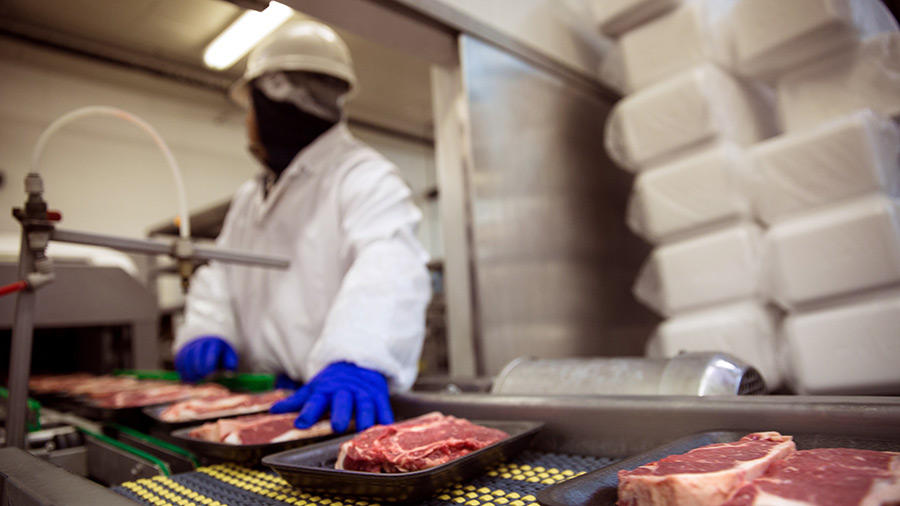Food contamination and animal disease major threats to UK
 © elnariz/Adobe Stock
© elnariz/Adobe Stock Food supply contamination and animal disease outbreaks have been listed among some of the most serious threats facing the UK on the government’s official risk register.
The register, which has been updated this month for the first time in three years, outlines 89 threats that could have a significant impact on the UK’s safety, security or critical systems at a national level.
Food supply contamination, with pathogens such as norovirus, salmonella, listeria or E coli, was listed at number 40 – following Farmers Weekly’s exclusive investigation into serious food safety breaches at a meat processor.
Find out more about Farmers Weekly’s Meat: Our Expectations campaign
The document said contamination represents a “significant threat to public health”.
Outbreaks of animal diseases such as African swine fever (ASF), foot-and-mouth disease (FMD) and avian influenza which spreads to humans were also listed as serious risks, as were failures in power supply or water availability.
Tony Goodger, head of communications at the Association of Independent Meat Suppliers (Aims), said: “In the three years since the last National Risk Register was published, the UK has faced the Covid-19 pandemic, the fallout from the war in Ukraine, as well as emerging technologies such as AI and more sophisticated criminal activity such as breaches in cyber security.
“These all leave parts of the country’s critical national infrastructure under threat.
“With agriculture and food production part of the critical national infrastructure, we welcome the risk register and its highlighting of the impacts of animal disease such as highly pathogenic avian influenza and possible outbreaks of FMD and ASF.”
But Mr Goodger went on to say he was “surprised” not to see food terrorism included on the risk register.
“By this, we don’t mean low-level criminality whereby a disgruntled employee contaminates a production run, but more where politically or ideologically driven terrorists contaminate the production of food products destined for the army of fast-moving consumer goods lines purchased daily by consumers.”
As well as identifying the main risks confronting the UK, the National Risk Register sets out what the most likely effects of that risk are, should it arise, so enabling the relevant bodies to undertake proportionate planning.
